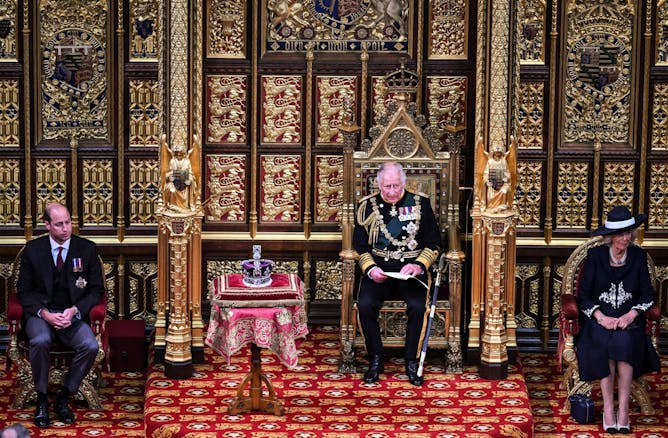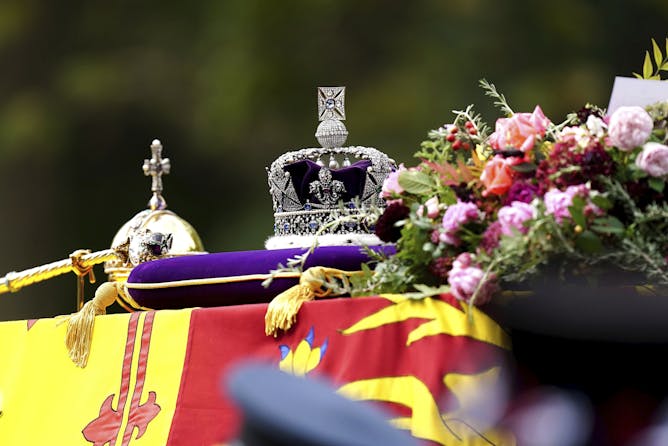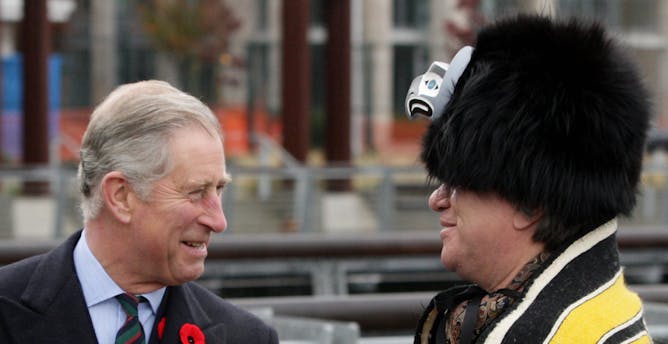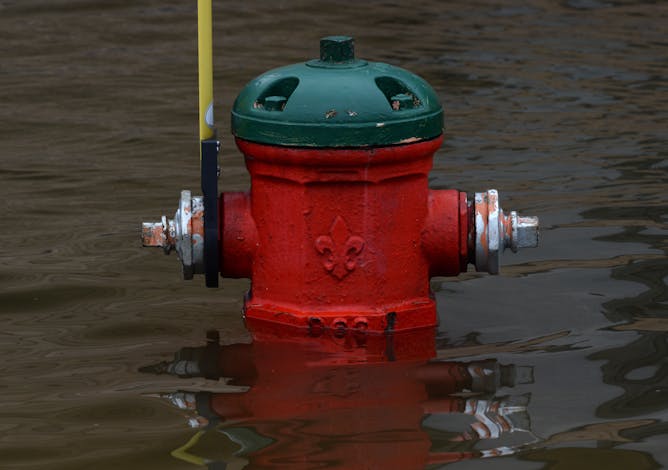|
|
|
|
Whether or not you are going to watch the King Charles coronation next week, the British Royals will likely soon infiltrate your life in some way, whether TV, or social media or podcast (guilty).
Although many will be out partying next weekend, the pomp of the coronation and its display of the Crown Jewels does not reflect current day British attitudes. Only 32 per cent believe the Empire is something to be proud of — that is down about 25 per cent from 2014. Hopefully, this means knowledge about colonialism’s ongoing impact, including the institution’s current racism, is growing.
Will these new attitudes have an impact on reparations when it comes to the Crown Jewels? Some of these jewels are relatively recent acquisitions from South Africa and India and have become symbols of past pillaging and brutal exploitation. Their symbolic return and certainly a telling of their true histories could go a long way to redress past wrongs.
These are the questions we get into in this week’s episode of Don’t Call Me Resilient. I speak with Annie St. John-Stark, assistant professor of British history at Thompson Rivers University and Sharanjit Kaur Sandhra, a UBC and University of the Fraser Valley instructor with a newly minted PhD who looks at how museums can grow to include voices previously left off the “official record.”
Also today:
All the best.
|

|
Vinita Srivastava
Host + Producer, Don't Call Me Resilient | Senior Editor, Culture + Society
|
|

What can the Crown Jewels tell us about the history and future of the British Royals? In this photo from last May, then-Prince Charles sits with Camilla and William by the Imperial State Crown in the House of Lords Chamber in London.
Ben Stansall/AP
Vinita Srivastava, The Conversation; Ollie Nicholas, The Conversation
Although King Charles will have a low-key ceremony this coronation, the Crown Jewels will still figure prominently. An exploration of the jewels tells a tale of exploitation, rape and pillage.
|

The State Gun Carriage carries the coffin of Queen Elizabeth, draped in the Royal Standard with the Imperial State Crown and the Sovereign’s Orb and Sceptre, following her funeral at Westminster Abbey in London in September 2022.
(Mike Egerton/Pool Photo via AP)
Annie St. John-Stark, Thompson Rivers University
Gems do not a monarch make, and repatriating the Crown Jewels would strengthen the contemporary British monarchy at a time when it most urgently needs to modernize.
|

King Charles, left, then Prince of Wales, talks with artist Wade Baker, of the Squamish Nation in Vancouver, B.C., in November 2009.
THE CANADIAN PRESS/Darryl Dyck
Alan Sears, University of New Brunswick
Ironically perhaps, it may be the move toward reconciliation between Indigenous Peoples and settler Canadians that revives the focus of the Crown in Canadian schooling.
|

Members of the Public Service Alliance of Canada picket outside a Service Canada office in Canmore, Alta., in April 2023. More than 150,000 federal public-service workers are on strike across the country after talks with the government failed. Remote work is a negotiation issue.
THE CANADIAN PRESS/Jeff McIntosh
Eric Champagne, L’Université d’Ottawa/University of Ottawa; Aracelly Denise Granja, L’Université d’Ottawa/University of Ottawa; Olivier Choinière, Université du Québec à Rimouski (UQAR)
COVID-19 transformed the workforce, including in the public sector. A complete reversal to pre-pandemic work models is unlikely, but there’s lots at stake as employers contemplate the future of work.
|
La Conversation Canada
|

Floodwaters cover a fire hydrant along a street in Gatineau, Que. Thursday, May 2, 2019.
La Presse canadienne/Adrian Wyld
Bernard Deschamps, Université du Québec à Montréal (UQAM)
De plus en plus de gens prennent le risque de vivre dans des zones inondables. Et tous les contribuables payent les coûts lors de dommage. Un nouveau mode de partage plus équitable est nécessaire.
|
Podcasts
|
-
Daniel Merino, The Conversation; Mend Mariwany
Older imported cars pose risks to motorists and spew pollution. Some countries, including Ghana, are taking steps to limit the harms of this piece of the vehicle life cycle.
|
|
Business + Economy
|
-
Verena Gruber, EM Lyon Business School; Marie-Agnes Parmentier, HEC Montréal
Ten years after a garment factory collapsed in Bangladesh, scholars find slow fashion practices hold the keys to a more sustainable, joyful relationship with clothes.
|
|
Environment + Energy
|
-
Philip Donkersley, Lancaster University
Before you reach for the weed killer, spare a thought for struggling pollinators.
|
|
Politics
|
-
Kristian Gustafson, Brunel University London; Dan Lomas, Brunel University London; Neveen S Abdalla, Brunel University London; Steven Wagner, Brunel University London
The role of the Wagner Group in the Sudan crisis is not yet clear, but its mercenaries are reported to be involved in a number of African countries.
|
|
|
|
| |
| |
| |

|
| |
| |
| |
| |
| |
| |
|
|
|
|
|
|
|